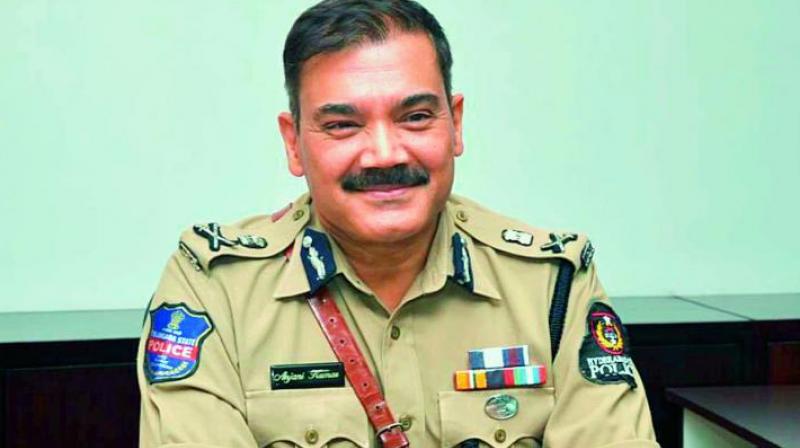Forget power, small wins cheer up officials
Top civil servants air frustration over their assignments.

Hyderabad: Former bureaucrat M. Ramachandran’s ‘Mavericks of Mussoorie - Life in the corridors of power’, frankly narrates that sometimes civil servants do not get the assignments they deserve or are transferred without taking into account the performance of the officer.
Reacting to this, former cabinet secretary and member, Planning Commission, B.K. Chaturvedi, said, “If you do something unpleasant, people would want you to be out of that job the next day. The stance of a civil servant has completely changed today.”
Echoing a similar sentiment, recently, an IAS officer of 1995 batch, AGMUT cadre, currently serving as Power Secretary, as well as transport commissioner, with the government of NCT Delhi took to Twitter and posted: Varsha Joshi @suraiya95: “Being a public servant involves so much frustration, so much of fighting pointless battles, so much of facing threats, so much two steps forward & one and half backward... but the smallest successes make it worth all the pain.”
A lot of other senior bureaucrats have echoed similar thoughts.
Inspector General of Police Soumya Mishra, says, “I totally concur with her. There are many things you attempt, to set up something new, to correct something not right. Sometimes you meet with success; at times you don’t. Sometimes your sincere hard work is frustrated by others who you know do not care for the betterment of the organisation or society at large. Ultimately, you get satisfaction that at least some of the things that you have done have been done very well and wouldn’t have happened had you not done it.”
“Isn’t all of life like this?” questions district collector Amrapali Kata. She adds, “Don't know any profession where it's always a straight line up.”
The service has its occupational hazards, yet it remains an exciting platform to take up (and follow through) on meaningful interventions for socio-economic growth of the country. “One has to work within the given constraints and build on the strengths that the system offers, while at the same time strategically building strongly on positive outcomes of one's good work and reputation to do more. The system respects well meaning individuals who deliver meaningful public service and selfless work wherever they are posted. Being a public servant means being committed to serving the marginalised and the excluded populations, bringing convergences of stakeholders, giving a voice to communities and being a passionate facilitator of these processes for growth and development,” says Sumita Dawara, senior IAS.
Bureaucrats, who go against the system, are vulnerable to being demoted, transferred, suspended and even dismissed like Durga Shakti Nagpal.
“Some difficulties will be there, but they add more spice to your life and one’s experiences as a public servant. When things are different from what they should be, some anger is normal. But, that has to be the starting of motivation to make things better,” says IAS Ajay Misra, Spl. Chief Secretary for Energy Department of Telangana.
“But there is other side of the coin too,” Misra adds, “The opportunity which a public servant has to make a difference in the lives of the public is immense, from the first to the last day of the job.”
As a public servant one is exposed to a lot of situations and not all situations are the same. “If someone has to ask me after spending 29 years in the police department, I would say that it is one of the most challenging and professionally most satisfying professions one can have in India. Yes, I agree there are ups and downs. Yes, I agree there are challenges from within and challenges from outside as well but that makes the job most satisfying. I can recount many occasions in which I have been let down by my own colleagues. External life is never a straight line. Success depends on how you internalise external reactions without getting affected internally I would say that the Gospel of Gita that one should not be too happy with moments of happiness and one should not be too unhappy with moments of unhappiness is the key,” sums up Hyderabad police commissioner Anjani Kumar.

